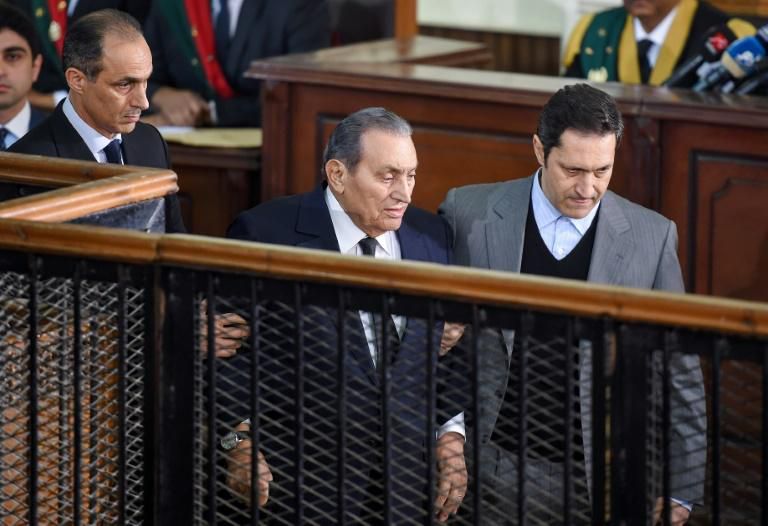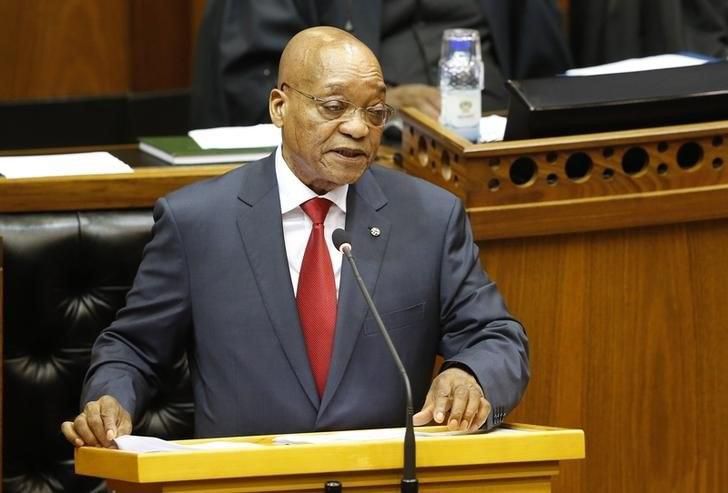Nicolas Sarkozy and 9 Other World Leaders Who Were Jailed After Leaving Office
)
In a stunning judicial development that has sent shockwaves through French politics, former French President Nicolas Sarkozy was sentenced to five years in prison on 25 September 2025, after being found guilty of criminal conspiracy in a scheme to finance his 2007 campaign with funds from Libya.
This landmark ruling makes Sarkozy the first former French president to receive a prison sentence, marking an unprecedented moment in French judicial history.
The 70-year-old Sarkozy, who served as France's head of state between 2007 and 2012, can appeal the verdict and may also request conditional release because of his age.
While the court acquitted him of three other charges, including passive corruption, illegal campaign financing and concealing the embezzlement of public funds, the criminal conspiracy conviction represents a dramatic fall from grace for a former leader who once wielded considerable influence on the European stage.
Sarkozy now joins a notable list of world leaders who have faced imprisonment after leaving office. Throughout modern history, the phenomenon of former presidents being jailed has occurred across democracies and authoritarian regimes alike, reflecting the complex relationship between power, accountability, and justice in different societies.
10 World Leaders Who Were Jailed After Leaving Office
1. Thaksin Shinawatra (Thailand, 2008–2025)
)
Former Thai Prime Minister Thaksin Shinawatra was convicted in absentia in 2008 of abuse of power and sentenced to two years in prison. After fleeing the country in 2006 following a coup, he lived in self-exile for 15 years. In September 2025, Thailand's Supreme Court ordered him to serve one year in prison for earlier convictions on graft and abuse of power, ruling that his hospital stay did not count as time served.
2. Alberto Fujimori (Peru, 2009)
)
Peru’s former President Alberto Fujimori was sentenced to 25 years in prison in April 2009 for human rights violations committed during his presidency (1990–2000). He was found guilty of authorising killings and kidnappings by death squads during his campaign against leftist rebels. Fujimori had fled to Japan in 2000 but was extradited to Peru in 2007.
3. Chen Shui-bian (Taiwan, 2009)
)
Taiwan’s former President Chen Shui-bian was sentenced to life imprisonment in September 2009 on corruption charges, including bribery and money laundering. His sentence was later reduced to 20 years. He had served as Taiwan’s president from 2000 to 2008 and was the island’s first leader from the Democratic Progressive Party.
4. Manuel Noriega (Panama, 2011)
)
Although technically a military dictator rather than an elected president, Manuel Noriega ruled Panama from 1983 to 1989. Captured by U.S. forces in 1989, he spent decades in American and French prisons before being extradited back to Panama in 2011, where he remained jailed until his death in 2017.
5. Hosni Mubarak (Egypt, 2012–2017)

Egypt’s longtime leader Hosni Mubarak (1981–2011) was sentenced to life imprisonment in June 2012 for complicity in the killing of protesters during the Arab Spring. His conviction was later overturned, and he was acquitted in 2017, though he remained in detention on other charges before being released.
6. Park Geun-hye (South Korea, 2018)
)
South Korea’s first female president, Park Geun-hye (2013–2017), was sentenced in April 2018 to 24 years in prison for abuse of power and corruption. She was convicted of colluding with her confidante Choi Soon-sil to pressure businesses into donating to Choi-controlled foundations. Her sentence was later reduced, and she was pardoned in 2021.
7. Lee Myung-bak (South Korea, 2020)
)
Former South Korean President Lee Myung-bak (2008–2013) was sentenced in October 2020 to 17 years in prison for corruption and bribery. His convictions included receiving bribes from Samsung and embezzling funds from a company he owned before his presidency.
8. Jacob Zuma (South Africa, 2021)

South Africa’s former President Jacob Zuma (2009–2018) was sentenced in June 2021 to 15 months in prison for contempt of court after refusing to appear before a commission investigating corruption during his presidency. He served around two months before being released on medical parole, though legal battles continued.
9. Otto Pérez Molina (Guatemala, 2022)
)
Guatemala’s former President Otto Pérez Molina resigned in 2015 amid mass protests over a customs corruption scandal. In 2022, he was found guilty of corruption and sentenced to 16 years in prison.
10. Nicolas Sarkozy (France, 2025)
)
Former French President Nicolas Sarkozy (2007–2012) was sentenced to five years in prison on 25 September 2025 after being convicted of criminal conspiracy linked to Libyan financing of his 2007 campaign. His sentencing represents an unprecedented moment in French history and underscores the growing global trend of holding former leaders accountable.
The Pattern of Presidential Accountability
The cases of these leaders highlight common themes: corruption, abuse of power, and the weakening of informal immunity once enjoyed by heads of state. While some nations have long traditions of prosecuting former leaders, others are increasingly showing willingness to hold ex-presidents accountable.
Sarkozy’s conviction stands out as one of Europe’s most significant rulings against a former head of state, sending a powerful message that no leader is beyond the reach of justice.
)
)
)

)
)
)
,fit(112:112))
)
,fit(112:112))
)
,fit(112:112))
)